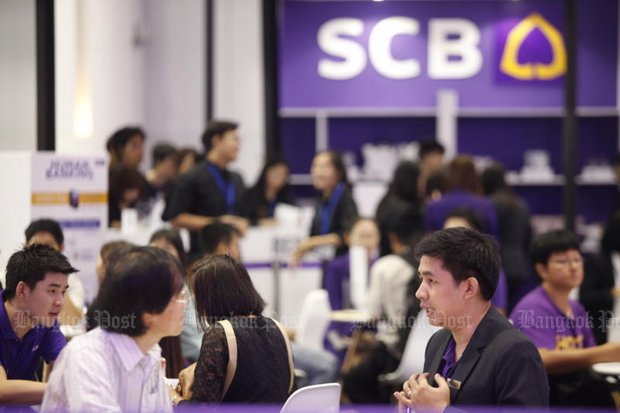
Siam Commercial Bank (SCB) has cut the working capital or overdraft line of credit for small and medium-sized enterprises (SMEs) that have repeatedly misused loans for alternative purposes in an effort to steer them towards financial discipline.
The bank has become more prudent and started to closely monitor SMEs' working capital loan usage after finding most SME borrowers are misusing the loans, which could lead to a liquidity squeeze and defaults in the future, said Pikun Srimahunt, senior executive vice-president for the SME segment.
For example, some SME borrowers have drawn down overdraft facilities to acquire land instead of using it for business operations or building up inventory.
The bank has instructed relationship managers to monitor SME borrowers' behaviour in using working capital loans and examine whether credit facility draw-downs match the needs of inventory accumulation, the production cycle and sales.
SCB initially delegated risk management officials to alert those who misuse loans, and the bank will reduce SMEs' credit lines if they continue to misuse the loans, Mrs Pikun said.
"The problem we found is that SMEs have taken out working capital loans to buy other things that are not related to their business operations, such as land and cars, so we have instructed our staff to closely monitor their behaviour," she said.
The bank has already addressed such problems by switching working capital to term loans or even reducing credit lines to levels deemed appropriate to make them financially disciplined, Mrs Pikun said.
"SMEs find that credit lines being offered to them are high because banks are vying to provide loans, so they use the funds for other purposes," she said. "We then need to cut their credit line to fit their real demand. If they don't have an excessive credit line, they won't spend lavishly."
She said SCB's SME non-performing loans are expected not to surpass 10% of loans outstanding next year.
The bank's SME bad-loan ratio edged up to 8.51% at the end of September from 8.25% at the end of June and 8.08% at the end of 2017.
SCB shares closed Friday on the Stock Exchange of Thailand at 139.50 baht, up 50 satang, in trade worth 601 million baht.